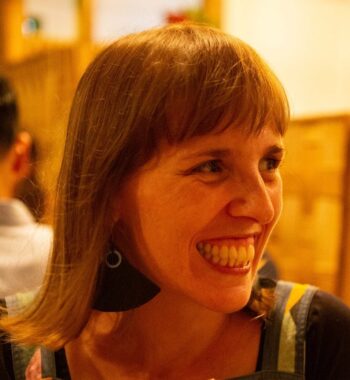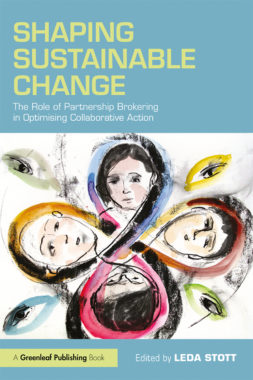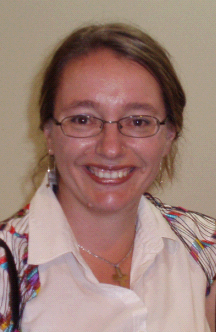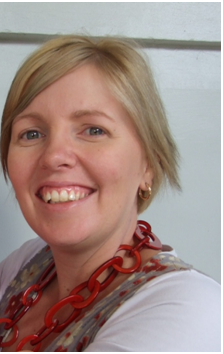5 Dec, 2022 | Filed under: Accreditation Scheme, Brokering, Learning, Reflective Practice, Transforming |

Annie Sloman
This month, in our Stories from Practice, we meet Annie Sloman, as she explores and reflects on how partnership brokering should, and can, support decolonization of aid.
Based on her experience as a partnership broker in Timor-Leste, Annie Sloman discusses possible contributions of partnership brokering to decolonization and combatting racism in international development and humanitarian action.
She unravels the hidden assumptions about power and privilege that we often take for granted in our practice, and how such assumptions can, in fact, be counter-productive in reducing systemic inequalities that we are working so hard to overcome.
She gives insightful ideas on how issues of power and privilege can be addressed immediately and continuously in ongoing partnership activities.
Read Annie’s paper for six practical guidelines as to what you can and should do differently in your practice, as a partnership broker – especially if you wonder whether your practice re-enforces colonial inequalities or transforms societies for a better world.
17 Sep, 2018 | Filed under: Accreditation Scheme, General News, Learning, Level 1 training, Transforming, Uncategorized |
 PBA is delighted to announce the publication of Shaping Sustainable Change: The role of partnership brokering in optimising collaborative action. The idea of writing the book was first discussed in 2014 and, a year later, was given impetus by the positioning of multi-actor partnerships as central to the achievement of the UN’s Sustainable Development Goals. At the same time, increasing attention was being paid to the role played by individuals and organisations who acted as ‘boundary spanners’ and ‘bridge-builders’ for these relationships. Shaping Sustainable Change aims to make the case for partnership brokering and share information on this emerging profession. In order to offer a useful blend of theory and practice, the book combines the knowledge and experience of PBA’s international network of associates and alumni with perspectives from wider literature and the academic arena. The first section explores the profile and key activities carried out by partnership brokers, and the skills and competencies required to undertake this role. This is followed by examples of partnership brokering practice in relation to different contexts, sectors, themes and partnering phases. The process of compiling the publication has involved a committed group of authors, peer reviewers, editors and proofreaders to whom we are immensely grateful. We hope that the book does justice to the work of partnership brokers everywhere and reinforces the importance of their contribution to building transformational collaborative arrangements for a more equitable and sustainable world.
PBA is delighted to announce the publication of Shaping Sustainable Change: The role of partnership brokering in optimising collaborative action. The idea of writing the book was first discussed in 2014 and, a year later, was given impetus by the positioning of multi-actor partnerships as central to the achievement of the UN’s Sustainable Development Goals. At the same time, increasing attention was being paid to the role played by individuals and organisations who acted as ‘boundary spanners’ and ‘bridge-builders’ for these relationships. Shaping Sustainable Change aims to make the case for partnership brokering and share information on this emerging profession. In order to offer a useful blend of theory and practice, the book combines the knowledge and experience of PBA’s international network of associates and alumni with perspectives from wider literature and the academic arena. The first section explores the profile and key activities carried out by partnership brokers, and the skills and competencies required to undertake this role. This is followed by examples of partnership brokering practice in relation to different contexts, sectors, themes and partnering phases. The process of compiling the publication has involved a committed group of authors, peer reviewers, editors and proofreaders to whom we are immensely grateful. We hope that the book does justice to the work of partnership brokers everywhere and reinforces the importance of their contribution to building transformational collaborative arrangements for a more equitable and sustainable world.
You can purchase your copy here.
13 Jan, 2012 | Filed under: Accreditation Scheme, Reflective Practice, Research |
To coincide with the launch of the Association, we have published a comprehensive report into the role of partnership brokers in multi-stakeholder collaborations. This brings together the practical experiences of 250 accredited partnership brokers and seeks to help both partnership brokers and the wider partnering community to better understand the partnership broker’s role in building and maintaining effective, efficient and innovative partnerships.
The enquiry finds that partnership brokers can make a difference to partnerships in two key ways:
- By helping partners address typical partnering challenges
- By improving a partnership’s efficiency, effectiveness and innovation
‘What do Partnership Brokers do?’ uses brokers’ personal reflections on their practical experiences of partnership brokering to draw out what the most common roles they play are, and what challenges they face.
Some of the key findings are that brokers:
- Spend considerable time on relationship-building and relationship management.
- Exercise a range of specific skills that also demonstrate approaches that partners can adopt and use themselves.
- Assist partnerships by pulling partners together when they fall out with each other and by pushing them to achieve more.
- See real value in becoming more ‘reflective’ in the way they approach their work.
- Have a need to balance effective, valuable input and potential dependency on them.
This research starts the ball rolling in assisting a greater understanding of the role of a Partnership Broker. The vignettes from brokers in their own words convey a real need for effective brokering – if partnerships truly are to achieve their ambitious goals. There is more work to be done, and we invite brokers to share their experiences with the partnering community to continue the quest for learning.
Download the enquiry here
30 Sep, 2011 | Filed under: Accreditation Scheme, Alumni, Reflective Practice |
By Carmel Vandermolen

Carmel Vandermolen
This is a story of two people who live over 2000 kilometres from each other, but despite the distance have become very important ‘critical friends’ in both a personal manner and as Partnership Brokers. These two critical friends have both had to deal with the challenges of post PBAS – the Partnership Brokers Accreditation Scheme which is the Level 2 option for practitioners seeking accreditation
This journey starts in September of 2010 when these two critical friends meet for the first time while attending the Level 1 training, and like many before them had a whole new world open up to them. Now for everyone who has been lucky enough to participate in the Level 1 training you will know that part of the program is to set you up with a critical friend to support you in reviewing your action plans developed during the training for implementation upon return to your work. While neither of these critical friends was purposefully set up in the training, the connection that was made meant that it happened anyway.
These critical friends have since completed PBAS Level 2 training, one at the end of 2010, and the other at the start of 2011. The PBAS Level 2 training comes with a very knowledgeable and supportive mentor who helps you question and improve your skills in the area of partnership broking. Over the three month period of PBAS the connection made with the mentor and the support that is provided goes a long way to improving both your skills and confidence. And then comes that black hole at the end of the three months when the training finishes and you no longer have access to the wonderful mentor and the big question of “how do I keep up the important practices that I have developed and implemented in the last three months?”
One of these important practices is the development and use of a log book that helps you to identify patterns and supports you to evaluate your own skills. What is improving?, where could I improve?, what went wrong that time? All the important reflective practice skills put into a format that can help you to expand your brokering skills. After getting used to having to write up and submit a log book, now you have no need to for a training purpose, but for a growth purpose and to continually learn and improve there is every need. But life gets busy, you skip a week, you have more meetings this week than you can handle, you skip another week of the log book. Soon you realise that you have not used it for over a month, and then it is so much harder to get back into it even though you know how beneficial it is for both yourself and the partnership(s) that you are involved with.

Roxanne Hodda
Then comes another important teleconference with your critical friend, and a discussion that is focused on the same issue, how to deal with the challenge of maintaining your reflective practice after completing PBAS! In the discussion between the critical friends an idea forms, and then the idea turns into action. The idea is in the form of reporting to each other at the end of each month, in just one page, of the challenges and successes faced in that month. The information should come from your log book that you have kept over that month. No longer do you have your mentor from the Level 2 training, but you do have each other and a commitment to each other to be the best you can be. And to be that important someone in another’s partnership life that can be that support for both the good and bad times, for the frustrations and the highlights when it all goes right.
The role of a critical friend can never be overlooked, and in meeting the challenges of post PBAS Level 2 it can be essential in making sure you get the best out of the training you have just completed.
Carmel says thank goodness I have Roxanne as Roxanne says thank goodness I have Carmel.
To be continued….

 PBA is delighted to announce the publication of Shaping Sustainable Change: The role of partnership brokering in optimising collaborative action. The idea of writing the book was first discussed in 2014 and, a year later, was given impetus by the positioning of multi-actor partnerships as central to the achievement of the UN’s Sustainable Development Goals. At the same time, increasing attention was being paid to the role played by individuals and organisations who acted as ‘boundary spanners’ and ‘bridge-builders’ for these relationships. Shaping Sustainable Change aims to make the case for partnership brokering and share information on this emerging profession. In order to offer a useful blend of theory and practice, the book combines the knowledge and experience of PBA’s international network of associates and alumni with perspectives from wider literature and the academic arena. The first section explores the profile and key activities carried out by partnership brokers, and the skills and competencies required to undertake this role. This is followed by examples of partnership brokering practice in relation to different contexts, sectors, themes and partnering phases. The process of compiling the publication has involved a committed group of authors, peer reviewers, editors and proofreaders to whom we are immensely grateful. We hope that the book does justice to the work of partnership brokers everywhere and reinforces the importance of their contribution to building transformational collaborative arrangements for a more equitable and sustainable world.
PBA is delighted to announce the publication of Shaping Sustainable Change: The role of partnership brokering in optimising collaborative action. The idea of writing the book was first discussed in 2014 and, a year later, was given impetus by the positioning of multi-actor partnerships as central to the achievement of the UN’s Sustainable Development Goals. At the same time, increasing attention was being paid to the role played by individuals and organisations who acted as ‘boundary spanners’ and ‘bridge-builders’ for these relationships. Shaping Sustainable Change aims to make the case for partnership brokering and share information on this emerging profession. In order to offer a useful blend of theory and practice, the book combines the knowledge and experience of PBA’s international network of associates and alumni with perspectives from wider literature and the academic arena. The first section explores the profile and key activities carried out by partnership brokers, and the skills and competencies required to undertake this role. This is followed by examples of partnership brokering practice in relation to different contexts, sectors, themes and partnering phases. The process of compiling the publication has involved a committed group of authors, peer reviewers, editors and proofreaders to whom we are immensely grateful. We hope that the book does justice to the work of partnership brokers everywhere and reinforces the importance of their contribution to building transformational collaborative arrangements for a more equitable and sustainable world.
